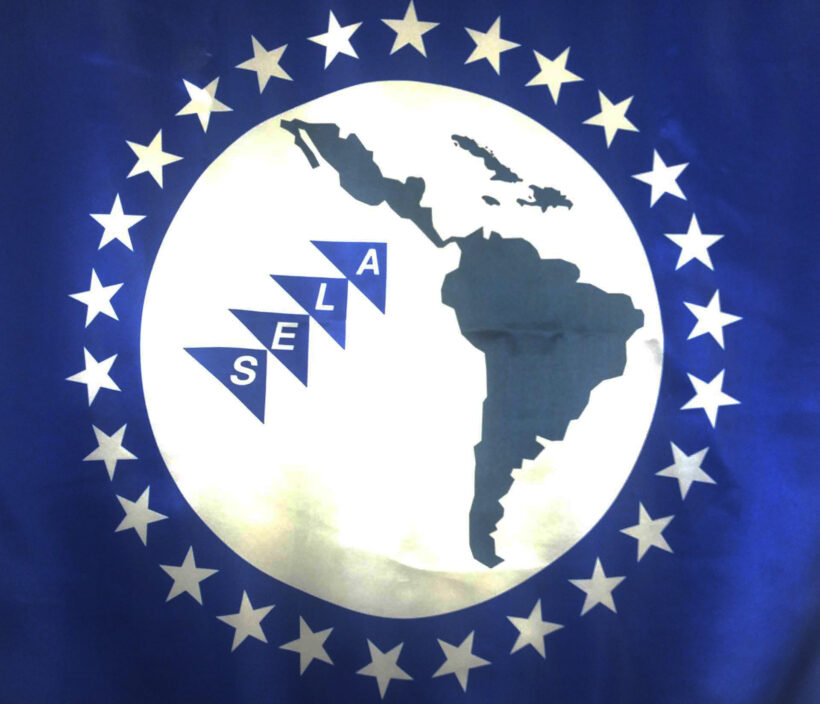These include the Vienna Convention on the Law of Treaties (UN, 1969), recognized as a customary norm and proclaimed as one of the purposes of the United Nations Charter:
By Ambassador Clarems Endara – Prensa Latina contributor
To achieve international co-operation in solving international problems of an economic, social, cultural or humanitarian character, and in promoting and encouraging respect for human rights and for fundamental freedoms for all without distinction as to race, sex, language or religion… (UN, 1945, Art. 1 Ord. 3)
[And] to promote international cooperation in economic, social, cultural, educational, and health matters and to assist in the realisation of human rights and fundamental freedoms for all without distinction as to race, sex, language, or religion… (UN, 1945, Art. 13 para. 1b).
The purpose of international cooperation is to invite States to achieve common goals that would be impossible to achieve individually or independently, through various mechanisms such as treaties, conventions, bilateral and multilateral agreements, aid, and technical or assisted cooperation programs, among others.
It is therefore a set of legal activities and mechanisms that states establish among themselves in order to achieve common objectives in a concerted manner.
Perhaps the most obvious expression of this is the 2030 Agenda and the 17 Sustainable Development Goals, with their 169 related targets, which ‘together aim to achieve global development and win-win cooperation (…) can bring enormous benefits to all countries in all parts of the world’ (UN, 2015, No. 18).
International cooperation is particularly relevant for Latin America and the Caribbean (LAC), as it has been one of the main mechanisms used by the countries of the region in recent decades to promote their economic and social development, as well as to face global challenges together, seeking to bridge unequal gaps and create shared opportunities in a context of growing global interdependence.
In this order of ideas, the “Resolution of the Economic Commission for Latin America and the Caribbean” on the creation of the Latin American and Caribbean Sustainable Development Forum addresses the following issues
The promotion of international cooperation and capacity building at the national level for the implementation of the 2030 Agenda for Sustainable Development, through means such as South-South and triangular cooperation and other cooperation modalities, to strengthen and complement traditional cooperation modalities (UN, 2018, Art. 7, Ord. f / p. 87).
Therefore, in an increasingly interconnected world, international cooperation is essential to overcome inequality gaps and ensure that all countries have access to the same opportunities. This is why international cooperation, and more specifically technical cooperation, is becoming a key tool for development and regional integration in Latin America and the Caribbean.
TECHNICAL COOPERATION
In this context of Latin American regional integration spaces, technical cooperation, anchored in international law, can be understood as the assistance mechanisms, governed by the principles and rules of international law, through which countries or international organisations transfer specialized knowledge, experience, resources, and technical capacities to LAC countries or regional blocs to strengthen their capacities and promote their development and economic and trade integration processes.
International technical cooperation must be guided by several principles enshrined in international law, such as respect for the principle of state sovereignty, according to which each country can make sovereign decisions on its internal and external affairs, and the principle of non-interference, which prohibits interference in the internal affairs of other states.
Other principles seek to ensure that cooperation is beneficial to all parties, i.e. the principle of mutual benefit, which states that it should be beneficial to the participating countries; and the principle of respect for human rights, in order to promote and protect them. In the case of regional integration, these principles are no different.
That is, “guided by the principles of respect for national sovereignty, national ownership and independence, equality, non-conditionality, non-interference in internal affairs and mutual benefit” (UNOSSC, 2024, Guiding Principles), international cooperation should seek to promote cooperation among States to achieve common goals, under principles related to development, which promote, among other things, the transfer of technology and training, to which regional integration responds importantly.
The a priori requirement to ensure state sovereignty, non-interference in internal affairs, mutual benefit, non-conditionality, among others, calls for international technical cooperation within the framework of bilateral, regional or multilateral agreements or treaties, often promoted by regional integration and coordination mechanisms such as the Community of Latin American and Caribbean States (CELAC), the Latin American Integration Association (ALADI), the Latin American and Caribbean Economic System (SELA) and the Common Market of the South (Mercosur).
They include mechanisms to facilitate South-South (between countries of the Global South) and triangular (between countries of the Global South and international organizations) knowledge transfer.
In Latin America and the Caribbean, subregional spaces for regional integration have been configured in response to different contexts, changing needs, and objectives.
The geographical, economic and cultural diversity of the region has led to the creation of different subregional integration spaces as initiatives that respond to the need of countries to deepen cooperation with their closest neighbours in order to promote common development through the coordination of efforts.
SELA plays a fundamental role in generating and leading technical cooperation opportunities in subregional and regional integration spaces for the development and growth of the region.
For this reason, it acts as a facilitator and promoter of technical cooperation in the region by providing a space for dialogue and cooperation among its member countries. Through various initiatives, programs, and projects, it promotes the transfer of knowledge, technology, and best practices among the countries of the region, thus contributing to sustainable development and economic growth.
ARB/EC
Ambassador Clarems Endara, Permanent Secretary of the Latin American and Caribbean Economic System (SELA).






